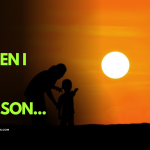Under the scorching desert sun at Doha, Qatar, Arturo “Turo” Ramirez adjusted his hard hat and lifted a sack of cement onto his shoulder. Around him, cranes moved steel beams like skeletal arms in the sky, and the rhythmic pounding of hammers echoed across the construction site. To passersby, it was just another building going up in the Middle East. But to Turo, every beam he bolted and wall he built was another piece of his family’s future.
Back in San Fernando, Pampanga, Turo had been a carpenter, taking small projects fixing roofs, making cabinets, patching broken walls. The money was barely enough to put food on the table, let alone send his three kids to school. His wife, Minda, sold homemade kakanin, and even with both their efforts, they were constantly behind on bills.
When a recruiter came to town offering construction jobs in Qatar, Turo hesitated. He had never been on a plane. He didn’t speak English well, let alone Arabic. But the promise of steady income and the though of his eldest son dropping out of school due to unpaid tuition pushed him to take the leap.
His first months in Qatar were brutally difficult. The heat was relentless reaching over 45% in summer and the work was backbreaking. He lived in a cramped labor camp with twelve other men in a room no bigger that his family’s living room. The food was bland, the hours were long, and homesickness clung to him like dust.
But Turo endured.
He woke up at 4:30 am. prayed in silence, and reported to work by sunrise. He carried steel rods, mixed concrete, laid bricks all while imagining the smiles of his children. Every blister and muscle ache reminded him why he was there.
Back home, his sacrifices began to show. His son stayed in school. His daughter started Grade 7 with new shoes. Minda no longer had to borrow money from neighbors. Their old bamboo fence was replaced with hollow blocks, and for the first time in years, they had electricity without overdue notices.
On Fridays, his only day off, Turo went to church with other Filipino workers. They shared food, laughter, and stories. He wrote letters to his kids and recorded video messages, even if the signal was poor. Sometimes, he cried at night not from pain, but from longing.
One day, while on the top floor of a building, he looked out over the city. Skyscrapers, luxury hotels, and stadiums stretched across the skyline many of them built by workers like him. He felt proud, even if his name wouldn’t be etched on any wall.
After four years, Turo returned home. He brought more than savings he brought hope. He helped Minda open a small hardware store. His son graduated from college. His youngest, now in high school, hugged him tighter than he expected.
Now 45, Turo is back in Pampanga, still working with wood and nails but this time, for his own home. He doesn’t dream of riches. He dreams of peace, of presence, of sitting under a mango tree with his grandchildren someday, telling them, “Lolo once built towers in the desert but this, this is my real legacy.”



